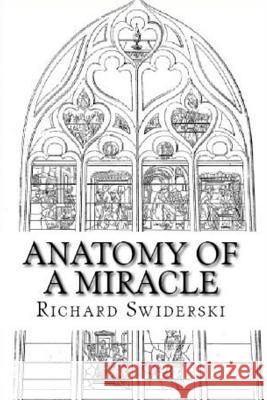Anatomy of a Miracle: Sacrilege and Reparation » książka
Anatomy of a Miracle: Sacrilege and Reparation
ISBN-13: 9781522746591 / Angielski / Miękka / 2016 / 252 str.
The story of a Jewish merchant in Paris who procured a host, the Blessed Sacrament of Christianity, from an indigent Christian woman and witnessed the miracle of its bleeding and indestructibility when he abused was doctrinally and economically opportune for religious and secular authorities. The burning of the Jew after he refused to convert to Christianity added to the force of the narrative. This book explores the origins of the story, presented as a historic event occurring at Eastertime, 1290, and its transformations over time and through different media. Its institutionalization split between two rival churches and bodies of administrators helped form a template for the dissemination of the miracle story and its reproduction in other cities. The unique image of "the boiled god," which reflected a reliquary projection of the miracle, energized existing Eucharistic miracle legends and helped convey the dogmas of transubstantiation and the real presence of Christ in the host. It also served as a capsule for Christian anti-Semitism conveying in dramatic form, and in dramas, the allegedly perfidious character of Jews and their efforts to commoditize Christian sacramentals. This combination of key factors gave the miracle story and its imagery great staying power. While Protestant, Catholic and Jewish critics exposed its inconsistencies and unreasoning harshness, and its churches and clergy were erased by revolution, it extended into the twentieth century of comic strips and renewed anti-Semitism, reflecting and foreshadowing the treatment of questioners of religio-economic arrangements.
Zawartość książki może nie spełniać oczekiwań – reklamacje nie obejmują treści, która mogła nie być redakcyjnie ani merytorycznie opracowana.











